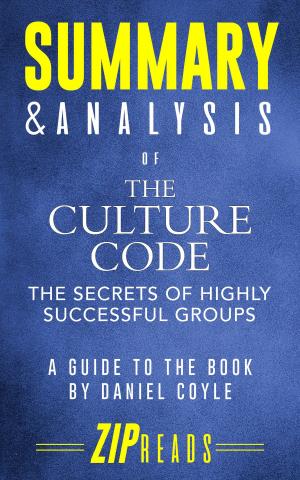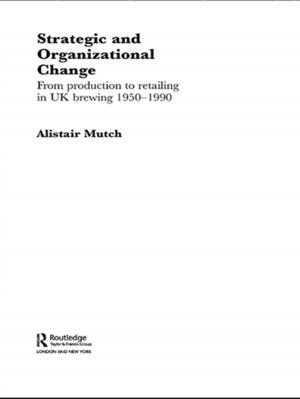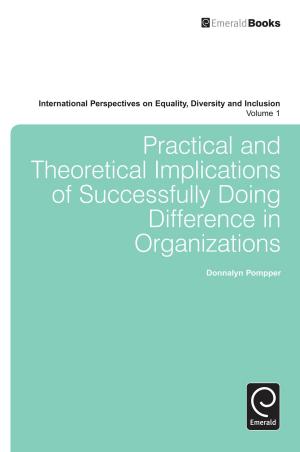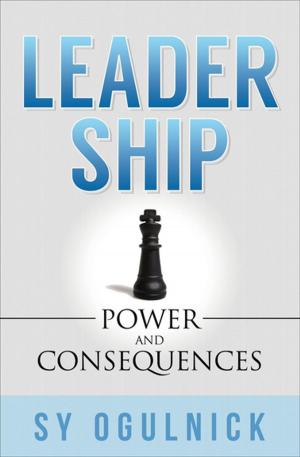Power through Collaboration: How Leadership Failure to Collaborate Created a Hurricane Katrina Mega-Disaster
Nonfiction, Health & Well Being, Psychology, Occupational & Industrial Psychology, Business & Finance, Human Resources & Personnel Management, Organizational Behavior| Author: | Stephen Willis, Ph.D. | ISBN: | 9780985476847 |
| Publisher: | Stephen Willis, Ph.D. | Publication: | September 2, 2019 |
| Imprint: | Smashwords Edition | Language: | English |
| Author: | Stephen Willis, Ph.D. |
| ISBN: | 9780985476847 |
| Publisher: | Stephen Willis, Ph.D. |
| Publication: | September 2, 2019 |
| Imprint: | Smashwords Edition |
| Language: | English |
This book uses the Power through Collaboration (PtC) Formula to perform a postmortem on the excessive death and destruction caused by Hurricane Katrina. The postmortem agrees with Congressional investigations that a “failure of leadership” produced dysfunctional emergency preparedness and response. Consequently, a nature-made crisis escalated into a man-made “mega-disaster.”
The PtC Formula postmortem probes even deeper to determine why high-level emergency management leaders so ineptly managed the Hurricane Katrina crisis. A pivotal factor turns out to be a “leadership failure to collaborate” between the heads of the Federal Emergency Management Agency (FEMA) and the Department of Homeland Security (DHS). These top leaders were fully warned about the danger of Hurricane Katrina. Apparently, they were not warned about the danger of failing to collaborate. This postmortem belatedly provides that much needed warning.
Anyone who is responsible for the results of high-risk high-stakes endeavors needs to take heed and fully comprehend the Katrina mega-disaster. This archetypal story brings to life all-too-human and fallible leaders struggling in complex organizations beset by incredible challenges. It illustrates dynamics of power that lead to mission failure and unnecessary death. The Katrina mega-disaster story merits widespread retelling to ensure its crucial lessons are taken seriously and put into action.
This PtC Formula postmortem draws on extensive Congressional investigations and testimony, news reports, books, interviews, and speeches. As much as possible, the actual words of the FEMA Director and DHS Secretary are allowed to speak for themselves. Their words are moving and enlightening.
Abundant public information offers a treasure trove to mine for learning about leadership during crises, emergency management, organizational effectiveness, and societal values. Moreover, it offers a rare opportunity to examine typically hidden factors that can transform a dangerous crisis into a tragic mega-disaster.
The PtC Formula provides a tool to illuminate interpersonal and organizational power dynamics that are usually too sensitive to openly discuss. It provides a framework to make sense of perplexing interactions, to formulate hypotheses, and to extract essential lessons. In addition, the PtC Formula enables the evolution of strategies to help people avoid the missteps that can escalate crises into disasters. It translates the unsettling reality of the Katrina mega-disaster into straightforward guidance regarding what the FEMA Director and DHS Secretary could have done differently.
However, this PtC Formula postmortem does not draw any inferences regarding PtC Types* or psychiatric diagnoses. Additionally, it does not offer any inferences about who was most at fault. Despite the shocking events, mystifying behaviors, and agonizing consequences that are examined, the intent of this postmortem is not to cast blame.
The leaders involved faced enormous challenges and can use understanding more than condemnation. Many people faced with comparable challenges would behave in a similar fashion. To emphasize that the manifested power dynamics are by no means limited to particular individuals or organizations, names of involved parties have been replaced. Failure to collaborate is remarkably common, but it becomes too obvious to ignore when the consequences are so disastrous that they become the predominant media story.
PtC Formula postmortem inferences can only be as thought-provoking as allowed by available information, which is subject to changes and additions. Inferences are also subject to alternative perspectives. Readers may choose to emphasize different facets of the public record and draw their own inferences that differ from those of this PtC Formula postmortem. The copious information and complexity of people and events leaves plenty of room for further exploration, dialogue, and debate.
This book uses the Power through Collaboration (PtC) Formula to perform a postmortem on the excessive death and destruction caused by Hurricane Katrina. The postmortem agrees with Congressional investigations that a “failure of leadership” produced dysfunctional emergency preparedness and response. Consequently, a nature-made crisis escalated into a man-made “mega-disaster.”
The PtC Formula postmortem probes even deeper to determine why high-level emergency management leaders so ineptly managed the Hurricane Katrina crisis. A pivotal factor turns out to be a “leadership failure to collaborate” between the heads of the Federal Emergency Management Agency (FEMA) and the Department of Homeland Security (DHS). These top leaders were fully warned about the danger of Hurricane Katrina. Apparently, they were not warned about the danger of failing to collaborate. This postmortem belatedly provides that much needed warning.
Anyone who is responsible for the results of high-risk high-stakes endeavors needs to take heed and fully comprehend the Katrina mega-disaster. This archetypal story brings to life all-too-human and fallible leaders struggling in complex organizations beset by incredible challenges. It illustrates dynamics of power that lead to mission failure and unnecessary death. The Katrina mega-disaster story merits widespread retelling to ensure its crucial lessons are taken seriously and put into action.
This PtC Formula postmortem draws on extensive Congressional investigations and testimony, news reports, books, interviews, and speeches. As much as possible, the actual words of the FEMA Director and DHS Secretary are allowed to speak for themselves. Their words are moving and enlightening.
Abundant public information offers a treasure trove to mine for learning about leadership during crises, emergency management, organizational effectiveness, and societal values. Moreover, it offers a rare opportunity to examine typically hidden factors that can transform a dangerous crisis into a tragic mega-disaster.
The PtC Formula provides a tool to illuminate interpersonal and organizational power dynamics that are usually too sensitive to openly discuss. It provides a framework to make sense of perplexing interactions, to formulate hypotheses, and to extract essential lessons. In addition, the PtC Formula enables the evolution of strategies to help people avoid the missteps that can escalate crises into disasters. It translates the unsettling reality of the Katrina mega-disaster into straightforward guidance regarding what the FEMA Director and DHS Secretary could have done differently.
However, this PtC Formula postmortem does not draw any inferences regarding PtC Types* or psychiatric diagnoses. Additionally, it does not offer any inferences about who was most at fault. Despite the shocking events, mystifying behaviors, and agonizing consequences that are examined, the intent of this postmortem is not to cast blame.
The leaders involved faced enormous challenges and can use understanding more than condemnation. Many people faced with comparable challenges would behave in a similar fashion. To emphasize that the manifested power dynamics are by no means limited to particular individuals or organizations, names of involved parties have been replaced. Failure to collaborate is remarkably common, but it becomes too obvious to ignore when the consequences are so disastrous that they become the predominant media story.
PtC Formula postmortem inferences can only be as thought-provoking as allowed by available information, which is subject to changes and additions. Inferences are also subject to alternative perspectives. Readers may choose to emphasize different facets of the public record and draw their own inferences that differ from those of this PtC Formula postmortem. The copious information and complexity of people and events leaves plenty of room for further exploration, dialogue, and debate.















